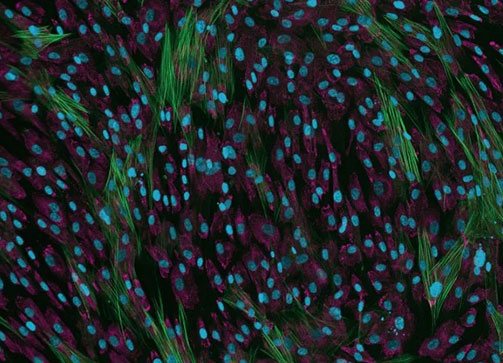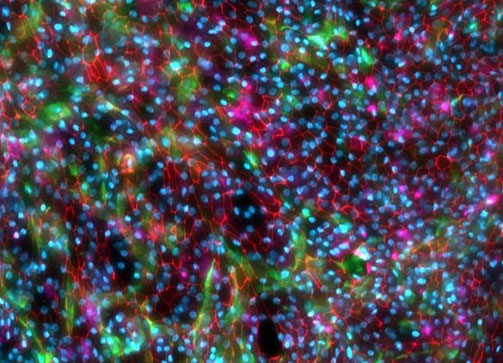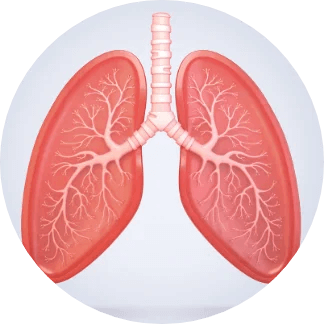Why use our lung airway models?
Models that mimic in vivo function
- Accurate & reliable results
Three donors available per study
- Comprehensive data
High throughput
- Time saving & efficient
Our Models
Human Lung Fibroblasts
Our Fibroblast-to-Myofibroblast Transition (FMT) assay is robust and validated. The 384-well format allows rapid evaluation of multiple compounds and conditions using imaging outputs.

Human Small Airway Epithelial Cell Model
A robust, physiologically relevant lung air-liquid interface epithelial model to enable scientific research and drug discovery

High throughput FMT assay service
Lung Model Capabilities
Dr Megan Webster, Head of Lung Platform
Working with us
Timely service
Our service timelines are short due to the efficiency of our assay. We can provide multiple data points on a single plate in as little as 2 months. Our FMT assay evaluates both collagen I and III as well as α-smooth muscle actin.
Model validation
Our lung tissue model is well-characterised and rigorously validated to ensure the generation of robust and predictive data. Our clients also value our scientific expertise in the analysis and interpretation of data.
How we support our clients
By providing predictive data, we give our clients confidence in their key decision processes using our lung model and our Lung Fibroblast-to-Myofibroblast Transition (FMT) assay service.
Our expertise
Our team is experienced in assay development for drugs targeting the lung with specific knowledge of fibrosis. By combining this knowledge with primary and iPSC cell technology, they have developed assays that can help our customers screen, optimise and select candidates for combating fibrosis.




